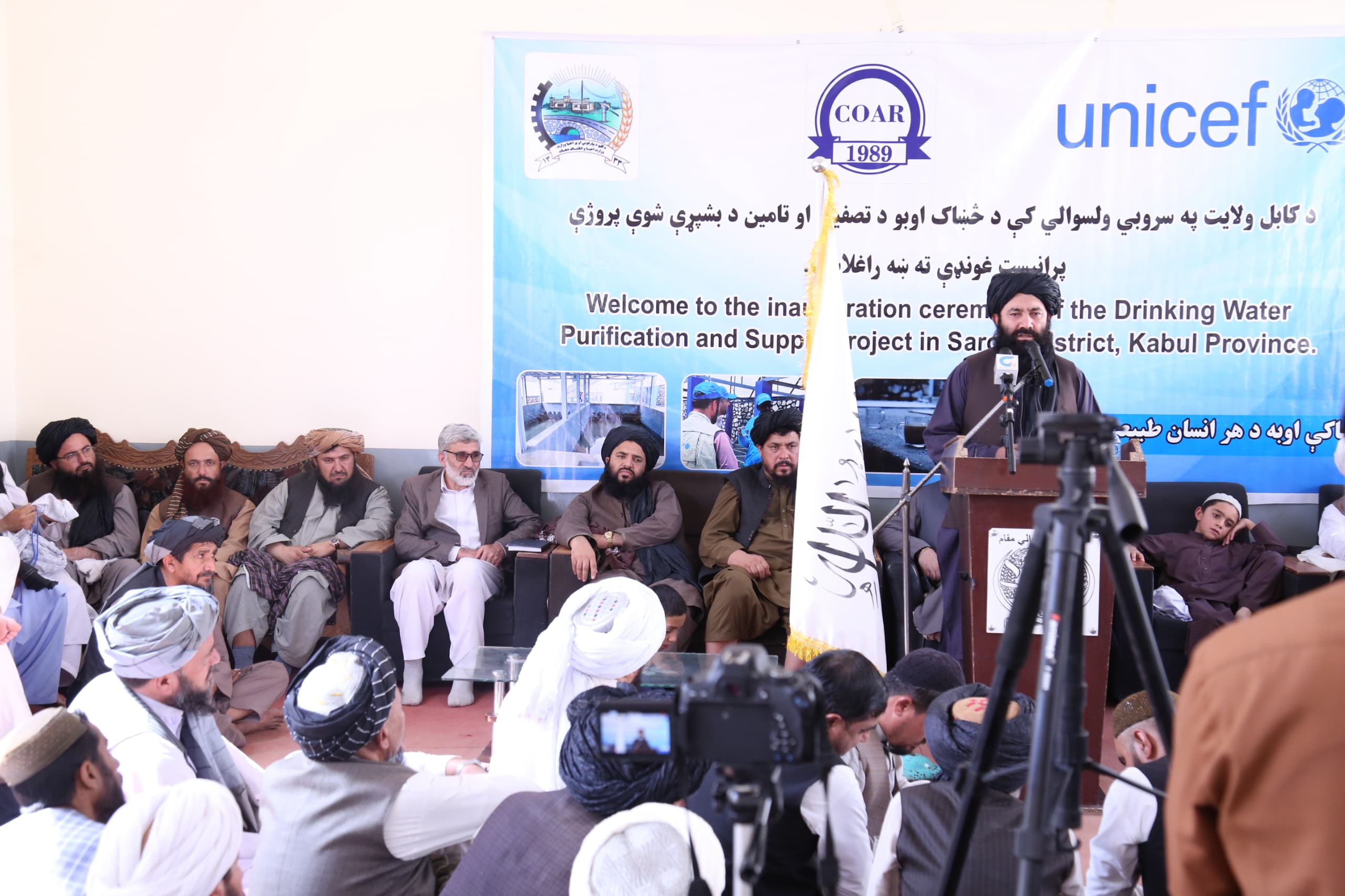A water supply network and a water filtration plant have been inaugurated and put into use in Kabul Province.

With the financial assistance of the UNICEF office and under the Ministry of Rural Rehabilitation and Development, the construction of a water supply network and a water filtration plant in the villages of Taba Khan and Faqirabad in the Sarubi district of Kabul Province have been completed at a cost of 518,718 Dollars. Today, during a meeting, it was officially handed over for use by the acting minister of this ministry, Alhaj Mullah Mohammad Yunus Akhundzada.
The meeting was attended by the acting minister of the Ministry of Rural Rehabilitation and Development, Alhaj Mullah Mohammad Yunus Akhundzada, accompanying delegation, the governor of Kabul Province Alhaj Mullah Aminullah Obaid, the head of the rural rehabilitation and development department of the province Mullah Mohammad Yunus Hanifi, the district chief, several other officials, elders and youth.
In the meeting, the acting minister of the Ministry of Rural Rehabilitation and Development spoke about the implementation of water supply projects and their importance in the lives of rural communities. He stated, "Today marks the opening of the river water filtration project in Kabul for the first time, which is a vital project for the residents of this area."
From now on, no one will have to go far from home to fetch water; they will have drinking water in their homes, and everyone will have access to clean water through taps installed in their houses.
The Ministry of Rural Rehabilitation and Development is always striving to serve rural communities in various sectors according to its available resources, and I urge you to make serious efforts to maintain these projects. I also call on Organizations to work on such public welfare and healthy projects.
The network includes the construction of three reservoirs with capacities of 80, 130, and 80 cubic meters, the installation of pipes extending over 12,926 meters, the connection of 118 solar panels, and 526 water distribution points. During the construction of this network, job opportunities were provided for dozens of workers, and upon completion, 1,290 households in the mentioned villages gained access to clean drinking water.
